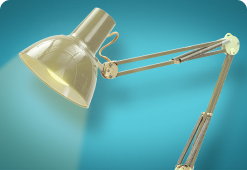The kidneys are two organs that are located on either side of the lower back, also known as the flank.2,3 They filter our blood to produce urine, removing toxic waste products and excess water, and keeping in important things like protein and red blood cells.2 They work a bit like a sieve keeping in the good stuff and letting out the stuff we don’t need.2
This filtering system works using tiny clusters of blood vessels called glomeruli. You can think of these as the tiny filters of the kidney.2
A kidney disease is any disease that stops the kidneys from working as well as they should.4
Glomerular diseases are a type of kidney disease that affect the glomeruli specifically.5
The most common causes of glomerular disease include:5
- IgA nephropathy
- Focal segmental glomerulosclerosis (FSGS)
- Lupus nephritis
- Membranous nephropathy
- Minimal change disease
- Anti-GBM disease (Goodpasture’s disease)
- Alport syndrome (hereditary nephritis)
Many types of glomerular disease are also classed as rare and chronic diseases, including IgAN.6–9 You can learn more about the symptoms of glomerular disease by clicking here.
There are various types of rare disease.10 As the name suggests, rare diseases affect very few patients.11,12 To put this into perspective, most doctors will only encounter a handful of patients with a rare disease in their entire careers.11,12 This can lead to feelings of isolation,11,13 but help and support are available from many sources, including this website.
A disease is described as “chronic” if it lasts for at least 3 months and tends to get worse over time.14 Most chronic diseases aren’t curable, so patients live with them for their entire lives.14,15 It can feel quite scary to have a condition that’s unlikely to go away, but learning as much as possible about it, and building a strong relationship with your healthcare team if you have one, can go a long way to helping you live as well as possible in spite of chronic disease.
In IgAN, the filters inside the kidneys get damaged by an abnormal form of IgA.16
IgA stands for immunoglobulin A, which is an antibody that fights infection.17 An abnormal form of IgA builds up in the kidneys and, in some cases, often following a cold, sore throat or other respiratory infection.16,17 This build-up in your kidneys causes inflammation, so the filters can’t work properly.17 It’s a bit like the sieve has become a colander and is letting out the good stuff, like proteins and red blood cells.16
Doctors don’t know exactly what causes IgA to build up in the kidneys, but it might be linked with liver disease, coeliac disease or infections, and may be more common in some families and in certain ethnic groups.17 To learn more about IgAN, please click here.
Please speak with your doctor if you have any questions or concerns about kidney diseases.

Glossary
Find a list of terms along with a simple explanation here.

Asking your doctor
Download a discussion guide to help you speak to your healthcare team.

Diagnosis
Find out how glomerular diseases are diagnosed.

Symptoms
Understand the signs and symptoms of glomerular disease.